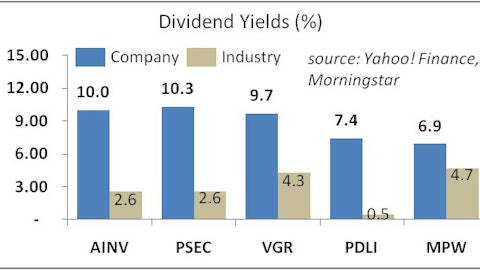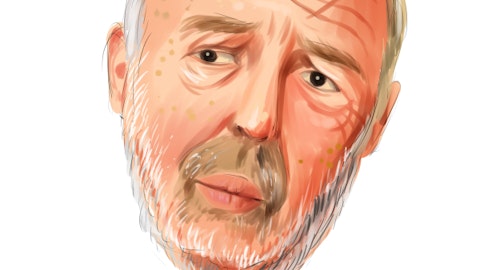
An Argentinian telecom company as its name suggests, Telecom Argentina is the second largest fixed-line operator in the South American country, second to Telefónica de Argentina, a subsidiary of Spain-based Telefonica S.A. (NYSE:TEF). To say that Telecom Argentina’s history is convoluted would be an understatement, but let’s do a quick run through the company’s timeline over the past two decades.
In the early nineties, the Argentinian government was in the process of privatizing a host of state-owned companies, which included telecom services. In the four decades prior to this point, ENTel had operated as a monopoly in the country’s telecom industry, and as a result, was subject to instability, particularly during a seven year military dictatorship beginning in 1976. Consequently, when new leadership privatized ENTel in 1990, the company was geographically split into two, and subsequently sold to state-owned France Télécom and Telefónica de España. The former divested its portion of ENTel into what we know as Telecom Argentina today, while the latter remains a subsidiary of Telefonica S.A., which was privatized from Telefónica de España.
If you’re considering investing in this stock, it’s absolutely crucial that you know the history of these two companies, because it’s the threat of nationalization that has pushed Telecom Argentina below $10 a share for the first time since the height of 2008’s global recession. See, Telefonica S.A. maintains an indirect stake in its primary competitor due to a 2007 purchase from Telecom Italia S.p.A. (NYSE:TI), which understandably gave regulators reason to pause. Amid cries of technical monopoly between both companies, the Argentinian government’s antitrust department originally okayed the transaction, but President Cristina Kirchner has sought a greater amount of nationalization in her second term, which began last year.
MarketWatch originally reported earlier this year that Telecom Argentina’s CEO Franco Bertone still does not expect a “return to government hands,” but to say the markets have been fearful would be an understatement. The company’s stock is down over 44% year to date, and has only received more bad news as of late. In a TV broadcast in early September covered by the Wall Street Journal, planning minister Julio De Vido stated:
“In the case of Telecom and Telefonica, we are going to continue working to resolve the issue of an installed monopoly […] We are going to be prudent but very firm in making decisions and setting a time frame to resolve these issues.”
That doesn’t sound like the tone of a government that views its antitrust department’s ruling as correct, as calling Telecom Argentina part of “an installed monopoly” is just about as accusatory as one can get in a public statement of this kind. Going forward, there haven’t been any new developments on the nationalization front, but for investors believing in Bertone’s conviction that a takeover won’t occur anytime soon, now’s a great time to buy in.
From a valuation standpoint, shares of Telecom Argentina currently trade at a measly forward price-to-earnings ratio of 3.5X. Despite the fact that the telecom has grown its EPS by 37.5% a year post-recession, its earnings have been pushed to nearly a third of their historical valuation, and far below the likes of Telefonica (6.5X), China Mobile Ltd. (NYSE:CHL) at 11.0X, Vodafone Group Plc (NASDAQ:VOD) at 10.4X, and Telecom Italia (9.6X).
This undervaluation comes in the face of solid expected earnings growth, as sell-side analysts forecast Telecom Argentina to experience between 8% and 9% annual EPS expansion over next half-decade, which is far above what’s expected of Telecom Italia (0% to negative), China Mobile (-3% to -4%). Vodafone’s forecast is a percentage point higher than Telecom Argentina’s, while Telefonica S.A. is the only real high-flier here, as analysts expect 15% growth over the next half-decade.
A final point that ardent Telecom Argentina bulls must track is the company’s dividend, which is a whopping 9.3% yield, but there will always be concerns of government pressure to reinvest in the country’s own capital development. In late April, the company compromised with regulators, promising to cut dividends by close to 10% while increasing domestic investment. Even at this reduced level, though, Telecom Argentina’s dividend yield trumps that of Telefonica (o.0%), China Mobile (3.8%), Vodafone (5.5%), and Telecom Italia (6.2%) significantly.
While the worries over government meddling are justified, now’s a great time to lock in a possible double, even triple bagger with Telecom Argentina, which is likely the mindset of hedge fund managers like Simons and Englander. If fears of nationalization do subside, investors can have a solid earnings telecom at a fraction of its true worth, and can get a healthy dividend to boot.





